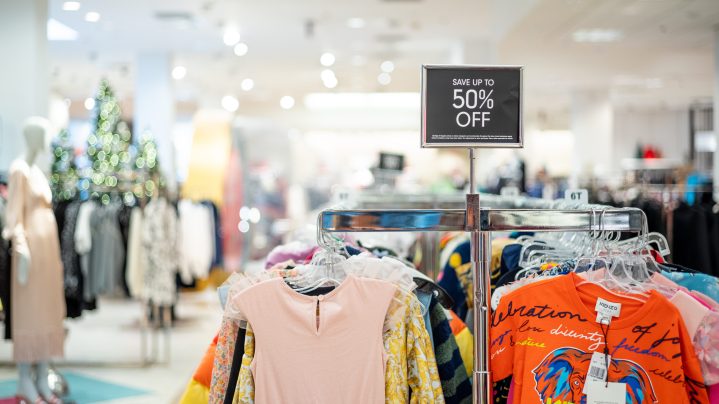
With retail inventories up 17% since last year, expect sales
With retail inventories up 17% since last year, expect sales

Managing retail inventories — the stuff that’s on the shelves and in the warehouses — has been the bane of many a business over the past couple of years.
A lot of retailers have finally managed to start selling off their extra items — and bring in items they couldn’t get — as they try to strike a normal, pre-pandemic balance.
But inventory levels overall are still 17% higher in October than they were a year earlier, according to the Commerce Department. And that makes things tricky for businesses still trying to wrestle with the long arms of the pandemic economy.
There is this plant you may have seen on TikTok or Instagram that’s called Monstera albo, which has big green and white leaves with slits in them. It was all the rage for a while, sometimes selling for hundreds of dollars.
“It’s really popular the last three or four years, and we sold out every month,” said Perry Zhang, the owner of A Plant Shop. He sells rare and uncommon houseplants on Etsy and eBay. (Full disclosure: I have bought a plant from his store. It’s still alive.)
So, Xiao stocked up on this rare plant, then “just within like 30 days or 60 days, the demand just quickly dropped.”
He was stuck with the plants in his basement. Plant sales do go down in winter, but he’s still trying to whittle down his overall inventory to match demand.
“Inventory cost is really high ’cause you have artificial light, water, labor,” Xiao said. “It’s not like paper boxes you can just put there and sit there forever.”
Inventory management is a problem that has plagued many businesses this year.
“Furniture, appliances, home furniture, electronics,” said Brett Ryan, senior U.S. economist at Deutsche Bank.
General merchandise stores have it the worst, but other sectors still have the opposite problem. “We still have very low inventories of cars, trucks, parts,” he said.
Every sector seems to have its own story about why it has too much or too little to sell, per Ryan. In housing, there was a shortage last year of lumber, so sellers ordered a bunch more. But then interest rates pushed the housing economy into the dumps, so now there’s plenty of lumber.
Retail is moving in the right direction, according to Zac Rogers, who studies supply chain logistics at Colorado State.
“Holiday sales have been strong, consumer shopping has been relatively decent, and so we have really gotten through this sort of big lump of inventory that was sitting in the system in the spring and early summer,” he said.
That said, inventory is still too high. So what do stores with too much stuff do? They do what plant retailer Perry Zhang’s going to do.
“We probably will do a big sale soon,” he said. Time to get more plants!
There’s a lot happening in the world. Through it all, Marketplace is here for you.
You rely on Marketplace to break down the world’s events and tell you how it affects you in a fact-based, approachable way. We rely on your financial support to keep making that possible.
Your donation today powers the independent journalism that you rely on. For just $5/month, you can help sustain Marketplace so we can keep reporting on the things that matter to you.











